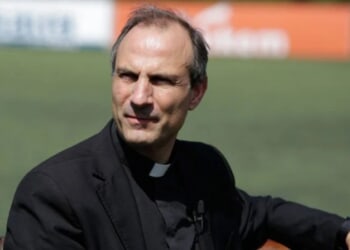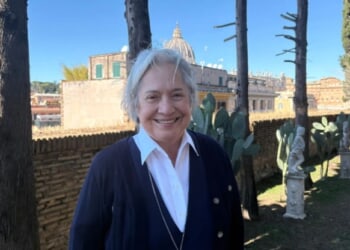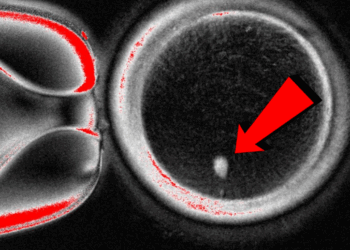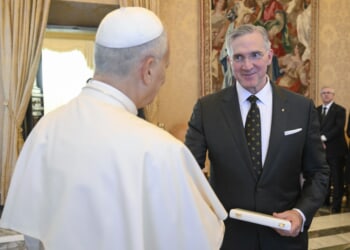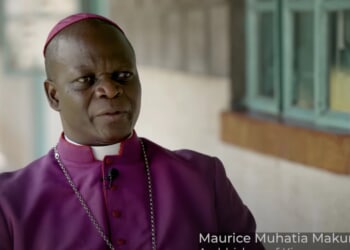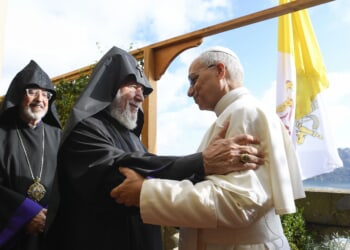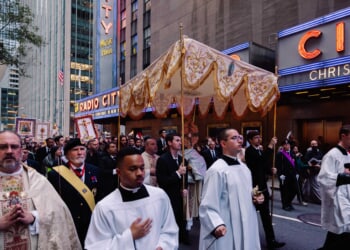CNA Staff, Sep 6, 2025 /
06:00 am
Anthony D’Ambrosio grew up Catholic and always viewed his faith as one of the most important aspects of his life — even entering seminary for a brief period of time. However, he felt called to leave seminary and go into youth ministry. He fell in love and was about to get engaged when he was diagnosed with a life-altering medical condition — a chronic mold infection with a major symptom being severe and even life-threatening insomnia.
D’Ambrosio’s relationship ended, he couldn’t maintain a job, and his faith unraveled. It was during the sleepless nights that he began to discover the story of St. Maximilian Kolbe, which led to creating a movie about the saint — “Triumph of the Heart.” It will be released in theaters on Sept. 12.
St. Maximilian Kolbe was a Polish Franciscan friar, priest, and martyr who volunteered to die in place of another man in the German death camp of Auschwitz. Kolbe spent the last 14 days of his life in a starvation bunker alongside nine other men. “Triumph of the Heart” focuses on Kolbe’s last days on earth spent in the starvation bunker.
While writing the film, D’Ambrosio began to see his own battle with insomnia as “being a bit of a stand-in for starvation,” he told CNA in an interview. The fact that Kolbe was also able to accompany three other men “to that miracle of staying alive for 14 days without food or water with him” was also meaningful for D’Ambrosio because “I knew that if Kolbe could have helped men in that situation to find a reason to live, that he could help me to find a reason to live.”
As D’Ambrosio spent more and more time with Kolbe’s story, he began to “see what true sanctity looked like, what love looked like.”
“This idea that he had volunteered to take on the suffering of these men in order to be with them — that really began to melt my own heart and to open me back up to God’s presence,” he added.
It was then that D’Ambrosio began his journey to create the film. He began to write the script, pilgrimaged several times to Poland to learn more about Kolbe, lived with the Franciscan friars in Poland, studied his story with the librarian who handles his archives, and ultimately worked with an American crew and partnered with Poles to tell the martyr’s story.
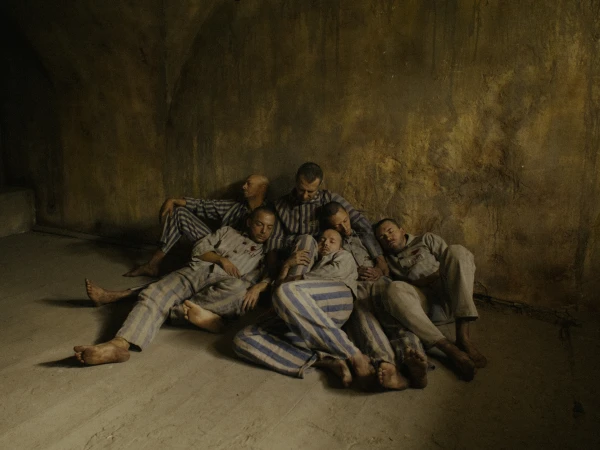
Despite facing numerous challenges while making the film, D’Ambrosio said the most beautiful aspect was seeing “how generous the Catholic world has been.”
“Triumph of the Heart” was an entirely crowdfunded movie — meaning all production costs were covered thanks to donations from individuals.
D’Ambrosio shared that not only did everyday Catholics generously donate financially, but they also donated airline miles for the crew to be able to travel and many volunteered to go to Poland on their own dime to help with the production while the team was there for three months filming.
“I mean the whole movie is just a compilation of the stories of people who have sacrificed immensely in order to tell the story,” D’Ambrosio said.
When reflecting on the life and story of Kolbe, D’Ambrosio said it serves as a great reminder to Catholics that “when everything is hopeless, really, truly, love has the power to overcome darkness and to change the world.”
“The choice to have to maintain love and hope and faith in the face of darkness is the most powerful expression of God’s love and presence that any person can offer the world,” he added.
Despite having his life’s work destroyed by the Nazis and witness his country of Poland be conquered and destroyed by the Germans, Kolbe maintained his faith, and for D’Ambrosio “that has been the part of his life that has resounded the most throughout history and throughout time.”
“I think for anybody that is struggling in any way in their lives right now, they can look at his suffering and look at the fruit of it and make sense in many ways — maybe not make sense but they can like find a balm and find a compass for their own action the way that I did,” he said.
(Story continues below)
Subscribe to our daily newsletter
D’Ambrosio emphasized that the movie is primarily about hope and said he finds it “very apropos that this year was declared to be a Jubilee of Hope and that somehow Kolbe’s movie and his story is coming out in the jubilee year.”
The filmmaker said he hopes viewers “will come away with this catharsis — with this feeling of all of that was worth it if that’s what heaven is like.”
“I think that the way that the movie leaves people is like a little promise of ‘Hey, it’s going to be OK. The place we’re going is better and all of the suffering and trials and tribulations that you go through here now and all the crosses that you bear, they will be fully redeemed and you will be completely filled up and made new.’”



